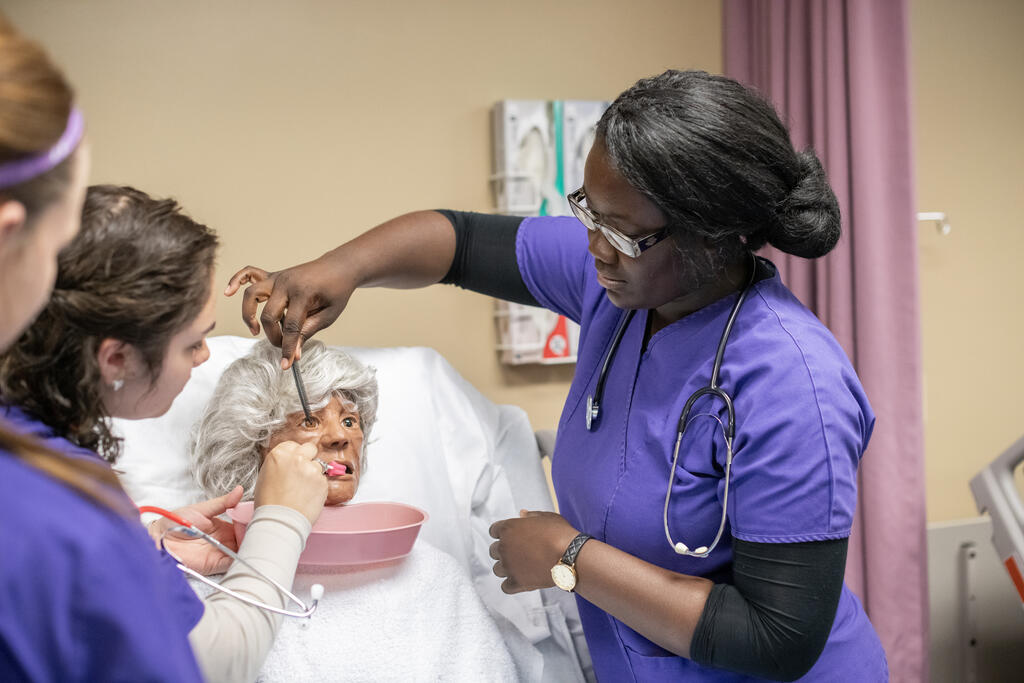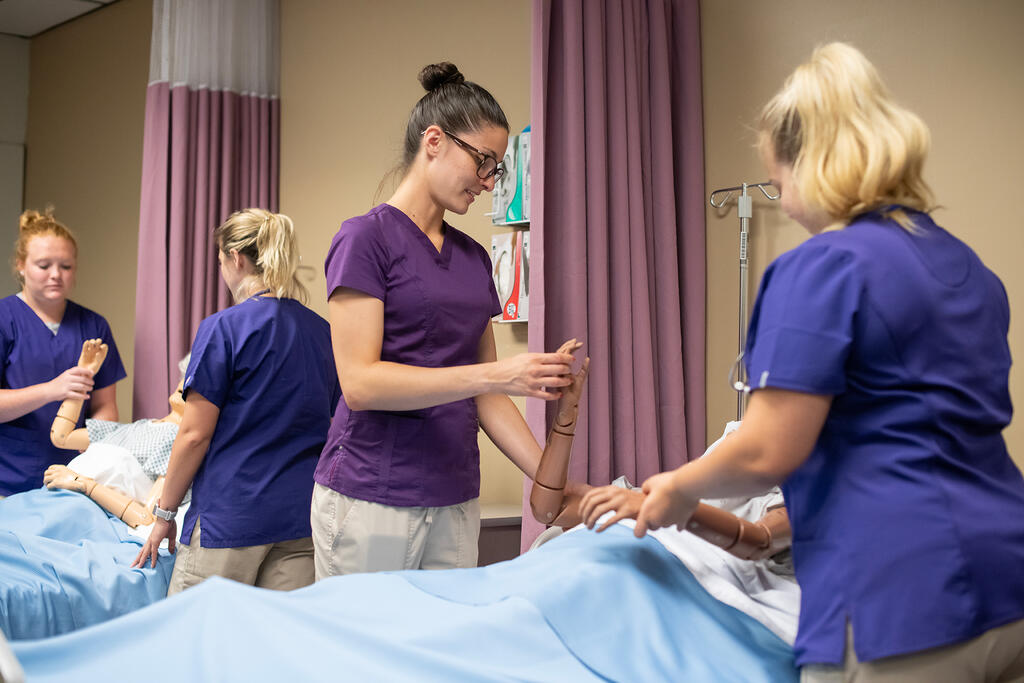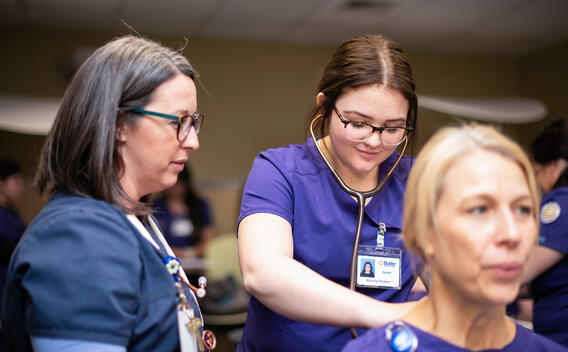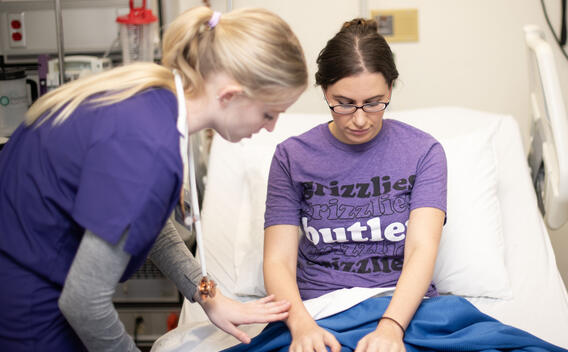

Certified Nurse Aide
Learn to give daily care to residents and patients in nursing homes, assisted living communities, hospitals and other long-term care housing. Assist with daily routines, hygiene and other necessary tasks as you fill the role of the first line of defense for a resident or patient.
Clinical Studies and Daily Tasks
Practice patient care in our clinical classes designed to prepare you for the challenges you’ll face in whatever facility you choose. Daily care and personal routines, such as bathing, getting dressed and assistance with eating are performed by or with the help of a Certified Nurse Aide (CNA).
CNA Duties
Work under the supervision of licensed nurses and communicate health concerns and changes of each person you take care of. Your role puts you in the best position to get to know your patients on a personal level.
Monitor changes in body condition, mental state and limb mobility as you work with your residents. Learn the charting system, such as PointClickCare, your employer uses to document changes in skin condition, bathing habits and appetite.
Some facilities give you the chance to participate in activities with residents and patients, such as playing bingo, low-intensity exercises, listening to group music and more. In long-term care facilities, you often get to know the loved ones of residents, giving you an advantage to care for your people.
Listening Ear, Big Heart
You won't only use your eyes to be there for your residents. Often, you'll be the shoulder they lean on when they're emotional and in need of compassion. The work you do puts you close and personal with these individuals, giving you a unique chance to help in difficult times and celebrate wins.
Success is in the Numbers
Our comprehensive CNA program maintains a 95% pass rate for the state certification exam. We prepare you to take the exam developed by the Kansas Department for Aging and Disability Services (KDADS).
Early College Academy (ECA)
Are you a high school student looking for a head start in the healthcare field? Our Early College Academy offers a CNA track and many others you can explore!
Have an Expired CNA or CMA License?
Renew your CNA or CMA certification through the Kansas Department of Aging and Disabilities Services (KDADS). Successful completion of the course renews your certification on the Kansas Nurse Aide Registry.
Classes You'll Take
You only take one course in this class. An update is offered for expired licensure.
- Certified Nurse Aide
- CNA Refresher: Topics for Aging for Long Term Care (for expired licensure)
The CNA path qualifies for our Open Education Resources (OER), where we provide some or all required course materials, saving you money.
Expand Your Career Options
Become adept at administering medications from antibiotics to documented narcotics in a healthcare facility. Work with licensed professionals during clinicals and familiarize yourself with protocols and safe administration. Learn about adverse drug reactions, side effects and protocols for administering certain medications. Practice giving medication to someone with dysphasia or trouble swallowing by mixing medicine with thickened substances like applesauce.
Understand the importance of RIGHT in drug administration: the right patient, the right drug, the right time, the right dose and the right route.
Prepared to Succeed
Butler's program prepares you to take the Kansas Nursing Home Medication Aide certification test. Coursework exposes you to correct procedures for administering oral and topical medications, the action of different classes of drugs, and how to identify and report side effects or adverse reactions.
Prerequisites for Certified Medication Aide (AH 120, 5 Credit Hours)
Because medication aides sometimes perform Certified Nurse Aide (CNA) duties, you will need a CNA certification to earn your CMA certification.
Learn to perform basic cardiac life support, provide hospital-setting care and identify patient health concerns as a patient care technician (PCT). Expand your Certified Nurse Aide (CNA) skills to provide more care to patients and increase your contributions to your healthcare team.
Acute Care Team Skills
Add a Patient Care Pathways Certificate to your CNA training to aid your goal of working in support of nurses and other healthcare professionals in a hospital or other acute care setting.
Explore a variety of acute conditions and related therapies, understand your legal and ethical responsibilities as a caregiver and appreciate your role as a patient advocate.
Work with licensed professionals in our clinical experience to gain a sense of the daily routine for a PCT worker.
Our program is streamlined to enable you to start working as a patient care assistant or nurse aide tech with less than 10 credit hours (in addition to the five credits required for CNA certification).



